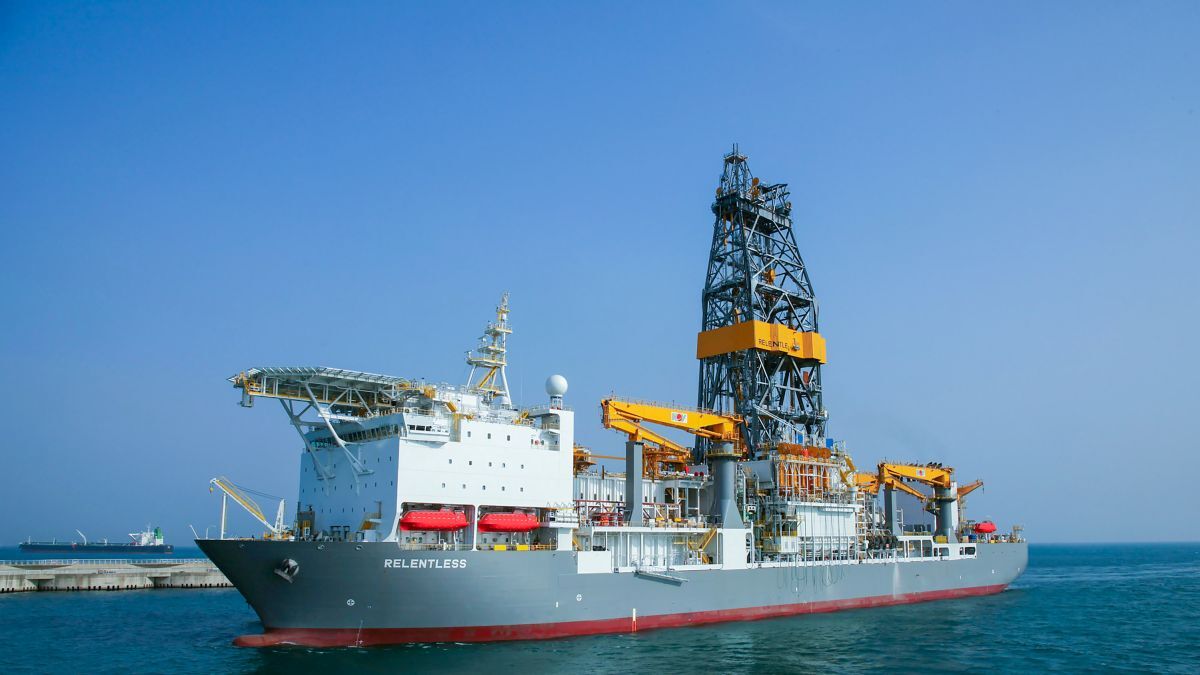At week 27, 2022, the number of active rigs recorded modest increases. Jack-ups stood at 383 active units while floater numbers rose by two active units to 141, according to the latest statistics from Westwood Global Energy
In merger news, the UK’s antitrust regulating Competition and Markets Authority (CMA) was expected to issue a decision on the Maersk-Noble merger this week but has now extended the consideration until 1 September 2022.
In late June, Noble Corp issued an update on its proposed merger with Maersk Drilling, announcing that Noble would sell five jack-up rigs to a new subsidiary of Shelf Drilling, as the company sought to remedy concerns over the merger previously identified by the CMA.
In its notice of extension of the ’consideration of undertakings,’ the CMA said “it will not be possible to reach a decision on acceptance of the undertaking by 6 July 2022. The reason for this is that the undertakings involve the divestment of a business to an upfront buyer. Accordingly, the CMA considers there are special reasons for the extension. The CMA also considers this extension does not materially increase the risk of an anti-competitive outcome from the merger and there is a sufficient likelihood it will be able to accept the undertaking before the end of the extended period.”
In related news, Maersk Drilling received a contract from Shell UK for the harsh-environment jack-up rig Maersk Resilient to drill the Pensacola well in the UK sector of the North Sea.
The two-month contract will commence later this year in direct continuation of the rig’s previous work scope with Nederlandse Aardolie Maatschappij (NAM). The 106-m, Gusto-engineered MSC CJ 50 high-efficiency jack-up rig was delivered in 2008 and is currently operating for NAM in the Dutch sector of the North Sea.
Elsewhere in the North Sea, Equinor has initiated a production shutdown at the Gudrun, Oseberg South and Oseberg East fields on the Norwegian continental shelf and has revealed plans to extend this to four more wells, the result of strike action taken by offshore workers over wage demands.
The background for the strike is that the members of workers’ union Lederne voted in a referendum not to accept a proposal tabled by a mediator working with the union and government authorities. Wage negotiations for offshore personnel between the labour organisations and the employers’ organisation, the Norwegian Oil and Gas Association have been ongoing.
Total production from Gudrun, Oseberg South and Oseberg East is around 89,000 barrels of oil equivalent (boe) per day, of which 27,500 boe per day is natural gas, according to Equinor.
An extension of the strike has been planned for the Heidrun, Kristin and Aasta Hansteen fields, beginning 6 July. Total production from Heidrun, /Tyrihans and Aasta Hansteen is around 333,000 boe per day, of which 264,000 boe per day is natural gas, Equinor said.
“To Equinor, this means the above-mentioned installations will perform a controlled shutdown of production, including the Tyrihans field, which is tied to the Kristin platform. A further escalation has been announced from 9 July at Sleipner, Gullfaks A and Gullfaks C. Consequences of this escalation is not yet clear,” a statement from Equinor said.
The Norwegian Oil and Gas Association said initial strike action will cut off 13% of the nation’s daily gas exports and 341,000 b/d of oil. Norway is Europe’s second-largest energy supplier after Russia. Notably, the Nord Stream 1 gas pipeline also will be closed for 10 days for maintenance work from 11 July.
Equinor added further work for Odfjell Drilling’s Deepsea Stavanger semi-submersible unit in continuation of its existing contract.
Deepsea Stavanger will drill an additional six wells, which are expected to occupy the rig into Q2 2023 at a day rate Odfjell did not disclose but said “is similar to the current contract” and includes a notable performance incentive rate. Norwegian state-owned energy giant Equinor has the opportunity to exercise further wells.
Valaris announced several contracts this week: extensions with Total Brazil for the DS-15 drillship in continuation of its current programme, and two-well extensions with Woodside for the DPS-1 rig for Woodside’s Enfield plug and abandonment campaign. Valaris estimates the Enfield contract will keep the unit occupied for 38 days and the Scarborough contract for a further 60. The unit will also work on a one-well extension for the Scarborough campaign.
The company also signed a four-year contract with Brunei Shell Petroleum for the heavy-duty modern jack-up Valaris 115 which will commence in April 2023 and is worth approximately US$159M.
Another four-well contract worth US$5M was signed with an undisclosed operator in the US Gulf of Mexico for the Valaris 144 jack-up for contracted work expected to commence Q3 2022 with an estimated duration of 60 days. In Q4, the rig will work for Cantium in the US Gulf for a 90-day period on a day rate of US$80,000.
In the North Sea, Valaris secured a one-well extension with Shell for the Valaris 122 jack-up, adding another 150 days to its existing work period.
Jack-up Valaris 107 will commence a short one-well deal with GB Energy offshore Australia in either Q4 2022 or Q1 2023 at an operating rate of US$118,000 per day.
The Valaris 36 rig was sold to an unnamed drilling contractor for US$9M, with restricted-use provisions.
But most significantly, the contractor’s DS-17 deepwater drillship was awarded a 540-day drilling contract by Equinor’s Brazilian division worth US$327M, set to begin 2023 on behalf of partners in the Bacalhau project. Bacalhau is a flagship project for Equinor which also operates an active FPSO in the field which is capable of producing up to 220,000 barrels per day.
Valaris DS-17 has been tasked to drill an appraisal well, plug an old exploration well and conduct additional drilling scope in Brazil.
Valaris chief executive Anton Dibowitz said, “We expect Brazil to be a significant growth market for high-specification floaters over the next several years and we are well-positioned to benefit by now adding a third rig to this strategic basin.”






